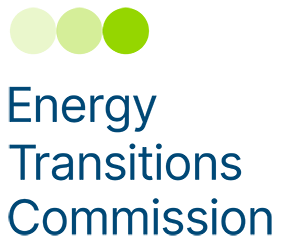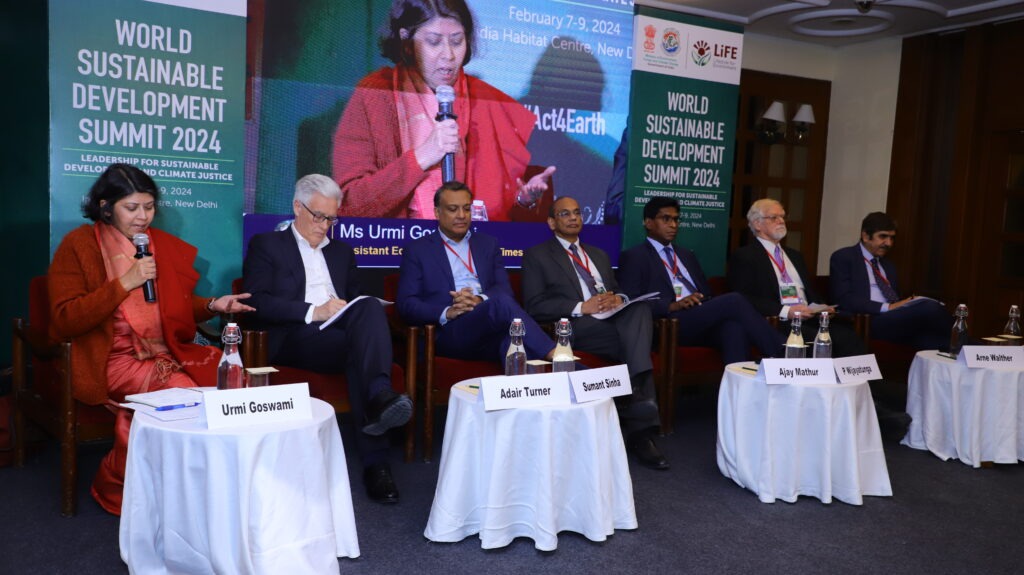In early February, the ETC’s Chairman, Lord Adair Turner, and our Global Programmes Lead, Rose Dortch, headed out to Indonesia and India for their first visit of 2024. The agenda was action-packed, meeting with local corporates, ETC members, partners and local & national government officials. We learned invaluable lessons, better understood local dynamics driving the pace of the transition to date, and opportunities to achieve net-zero as efficiently and quickly as possible – with implications for similar markets.
Indonesia
and Rose began their Indonesian leg with a visit to ETC member Institute for Essential Services Reform (IESR). The discussion with IESR’s analytical team covered their recent groundbreaking reports on the energy transition in Indonesia. The work most notably presents an argument for >85% of Indonesia’s electricity to be sustainably sourced from solar power, without the need to compromise grid stability. This assertion is supported by their sophisticated 15-minute dispatch model, confirming the feasibility of integrating high shares of renewable energy. The work further highlights Indonesia’s unique potential to harness solar energy and battery storage to address daily energy variations. This amidst forecasts that energy demand could surge to 2,800 TWh by 2050. Rose and Adair were impressed to hear of the essential grid interconnections across Indonesian islands to align energy generation with demand, complemented by GIS modeling to map out renewable energy potentials.
Off the back of these discussions, the ETC will look to work with IESR to engage with Indonesian policymakers and expose their work on energy systems with >85% VRE to other ETC regions. A big thank you to IESR for their hospitality.
India
Following their Indonesia visit, Adair and Rose continued on to India, beginning in New Delhi where they were hosted by ETC partners TERI (The Energy Research Institute). During this stop they attended the World Sustainable Development Summit (WSDS) organised by TERI, with Adair speaking on Leadership Panel: Addressing the Energy Trilemma in a Resource Constraint World.
With Adair and Rose having planned to be in Delhi for the WSDS, they took advantage of their time there by meeting with government officials Bhupinder Singh Bhalla, Secretary of the Ministry of New and Renewable Energy (MNRE), and Shri Pankaj Agarwal, Secretary of the Ministry of Power. This was a unique opportunity to unpack and define the government’s view on the energy transition in India. India is a crucial country for the global energy transition, as it is expected to become one of the largest power producers in the world, and a major player in the renewable energy technology sector.
The amount and diversity of work being done around the energy transition in India has increased tremendously in the last five years. Meetings such as these are extremely useful to the ETC. Understanding the breadth and depth of this work will allow us to identify potential areas of collaboration and further our impact on the journey to net-zero. To this aim, further knowledge meetings were also held with the Council on Energy, Environment and Water (CEEW), RMI India, WRI India, and IIT Delhi. This gave Adair and Rose the opportunity to analyse various projects being implemented across different sectors of the transition.
Moving forward, the ETC hopes to expand the knowledge network in India to get a robust understanding of the pace of the transition, to gain further clarity on what these knowledge organisations are doing on the ground, and how their work might overlap with the ETC’s own core work.
Before leaving Delhi, Adair and Rose managed to visit ETC member ReNew to discuss the state of the transition in India. Topics ranged from renewable supply chains in India to government processes for awarding renewables contracts.
Finally, the pair’s last leg was Mumbai. Here, they met with ETC members Tata Group and Tata Steel, as well as steel companies AMNS and JSW to discuss the various transition activities for each of the companies. Both gained some great insights on the Carbon Border Adjustment Mechanism (CBAM) and specifically the impact on India, as well as different strategies to achieve low-carbon steel in India.
Adair also gave a presentation to Godrej Industries and co-hosted a roundtable of industry leaders with Jamshyd Godrej to discuss industrial projects happening in India.
To find out more about our regional programmes visit: https://www.energy-transitions.org/regions/




